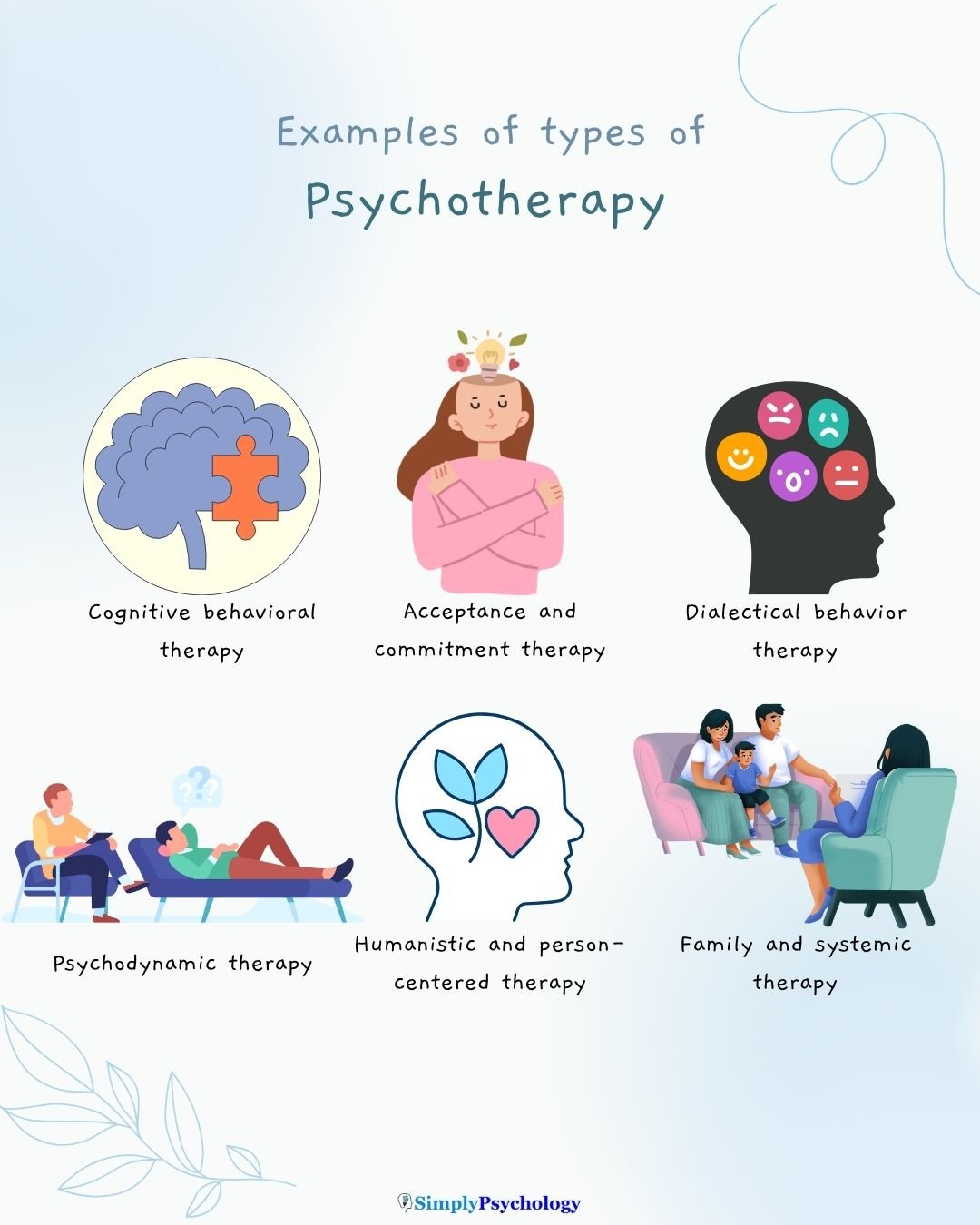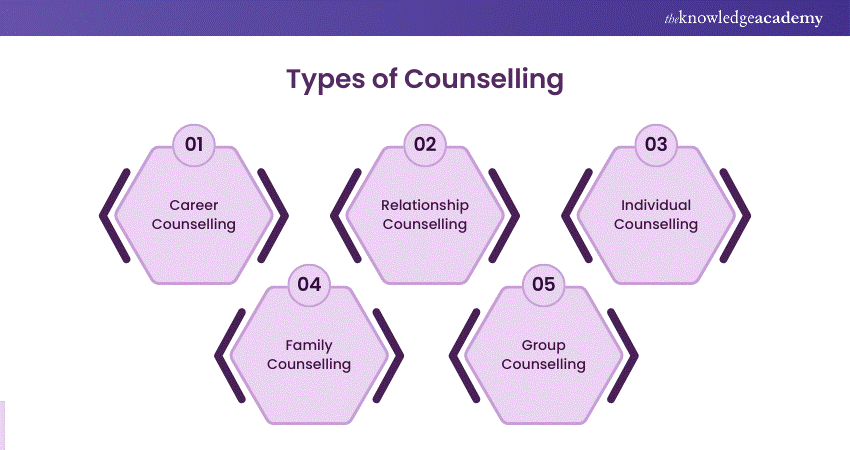A Comprehensive Overview to the Numerous Kinds Of Coaching and Their Influence
Therapy includes a range of restorative techniques, each created to satisfy special mental health needs. From the structured strategies of Cognitive-Behavioral Treatment to the compassionate nature of Person-Centered Therapy, these modalities offer distinctive paths to personal growth. Family members treatment and Dialectical Behavior modification offer additional structures for recovery, while team therapy fosters area assistance. Comprehending these diverse approaches can brighten their profound influence on private well-being. What stays to be explored are the intricacies of each strategy.

Comprehending Cognitive-Behavioral Therapy (CBT)
Although lots of restorative approaches exist, Cognitive-Behavioral Therapy (CBT) stands apart as a result of its structured, ambitious nature. This form of therapy is based on the premise that thoughts, feelings, and actions are adjoined, and by transforming adverse thought patterns, people can change their emotional actions and actions. CBT employs various techniques, such as cognitive restructuring, which aids customers determine and test distorted beliefs. Behavioral activation motivates interaction in pleasant activities to combat clinical depression.
Generally, CBT is a temporary therapy, usually enduring between 12 to 20 sessions, making it available for those seeking fast outcomes. Its efficiency has been well-documented in dealing with stress and anxiety conditions, depression, and various other mental health concerns. The therapist's role is to assist customers via workouts and research tasks, promoting self-awareness and advertising lasting coping approaches. This practical approach empowers people to take control of their mental well-being, ultimately resulting in improved life complete satisfaction.
Checking Out Person-Centered Therapy
Person-Centered Therapy, developed by Carl Rogers, offers a different strategy to Cognitive-Behavioral Treatment by highlighting the client's subjective experience. This therapeutic version focuses on the person's perspective, cultivating an environment of compassion, genuine positive respect, and authenticity. By enabling customers to explore their sensations and ideas without judgment, therapists assist in personal growth and self-discovery.
The core tenet of Person-Centered Treatment is the idea that individuals possess the integral capacity for self-healing and individual growth. In this setting, the therapist functions as a supportive guide as opposed to a regulation authority, encouraging customers to take fee of their own trip. This method is specifically efficient for those grappling with concerns such as low self-worth, anxiousness, or depression, as it empowers them to face and comprehend their emotions. Eventually, Person-Centered Therapy cultivates a solid healing partnership, fostering depend on and openness essential for meaningful change.
The Role of Household Therapy in Recovery
Household treatment functions as a vital component in the healing procedure for people and their relationships. This therapeutic method concentrates on improving communication, fixing disputes, and promoting deeper connections among member of the family. By addressing useless characteristics, family members treatment motivates each member to share their thoughts and sensations in a safe setting, advertising understanding and compassion.

The effect of family members therapy expands beyond the sessions, as improved relationships can result in improved emotional wellness for all included. Generally, household treatment plays a vital role in recovery by cultivating unity, strength, and common assistance amongst member of the family, eventually directing them toward a healthier, more fulfilling life together.
Unboxing Dialectical Behavior Modification (DBT)
Building on the foundation of therapeutic approaches that enhance emotional wellness, Dialectical Behavior modification (DBT) supplies a structured framework for individuals battling with extreme feelings and behavioral challenges. Established by Marsha Linehan, DBT incorporates cognitive-behavioral methods with mindfulness methods, intending to aid clients manage overwhelming feelings and enhance social performance.
The treatment is specifically advantageous for those identified with Borderline Character Condition however is additionally appropriate to an array of various other psychological health and wellness issues. relationship therapy. DBT is composed of private therapy sessions and abilities training groups, concentrating on four key ability: mindfulness, distress tolerance, emotion policy, and interpersonal effectiveness
The Benefits of Group Coaching Procedure
While specific treatment supplies useful insights, group counseling sessions use one-of-a-kind advantages that can substantially improve the restorative experience. One essential benefit is the sense of community that arises amongst participants. Individuals frequently find convenience in sharing their experiences with others facing similar obstacles, fostering an encouraging setting that decreases sensations of seclusion.
Furthermore, team sessions urge diverse point of views, enabling individuals to pick up from each other's coping methods and understandings. This cumulative wisdom can cause improved analytic abilities and a broader understanding of individual concerns.
Additionally, group counseling often promotes accountability, as participants inspire each other to pursue their goals and stick to their dedications. Ultimately, the cost-effectiveness of team treatment makes it an accessible option for numerous individuals seeking support. In general, the collective nature of group counseling sessions can greatly enrich the therapeutic trip.
Regularly Asked Concerns
What Qualifications Do Specialists Need to Practice Therapy?
Specialists typically call for a pertinent level in psychology or counseling, along with supervised scientific experience. Furthermore, they should obtain ideal licensure or qualification to read more practice legally, ensuring adherence to specialist requirements and moral guidelines.
How Do I Select the Right Kind of Treatment for Me?
Selecting the ideal type of therapy includes examining personal demands, exploring different approaches, thinking about therapist specializeds, and seeking referrals. Comprehending individual objectives and preferences can substantially improve the performance and satisfaction of the restorative experience.

Are Online Counseling Sessions as Effective as In-Person Ones?
The efficiency of on the internet counseling sessions contrasted to in-person ones frequently relies on private choices and scenarios. Research suggests that both methods can yield favorable results, though some might find greater convenience in face-to-face interactions.
For How Long Does Counseling Typically Last?

What Should I Anticipate Throughout My Very First Counseling Session?
Throughout the very first therapy session, customers can expect an intro, discussion of their issues, establishment of objectives, and an overview of the counseling process - couples counselling. This initial meeting intends to build rapport and assurance convenience